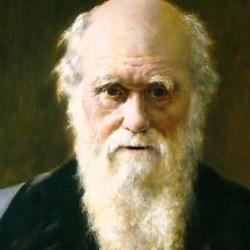Born into a pious Scottish family living in Canada in 1848, George Romanes might have been destined for ministry in the Church of Scotland. Reading Darwin upended his plans, and his early adulthood was marked by public disputes about science and faith, Romanes taking up the case for Darwin and against natural theology.
David Pleins explains in his recent In Praise of Darwin that Romanes believed Darwin had destroyed the natural theology of Paley and others, In a dispute with George Douglas Campbell, Duke of Argyll, Romanes argues that “Darwinian science in his estimation trumped superstition. . . . The evidence, he argued, was conspiring to prove special creation false. No facts, he concluded, supported special faction unless one believed that God had deceitfully set the natural order up so as to make evolution appear true” (13).
Pleins’s book doesn’t focus on Romanes as an individual site of the conflict between faith and science. Instead, his book focuses on Romanes’s “Memorial Poem,” written in praise of Darwin at the time of Darwin’s death. The lengthy poem was lost to the public for over a century, only an abridged version published. It is reprinted here in an appendix, and Pleins spends most of the book analyzing it.
The upshot of the poem is the development of a “critically-minded faith” in the unknown God who has been revealed in Darwin’s exposure of the “living tablet’s of Nature’s laws” (262). Darwin’s “eternal truth” doesn’t cancel faith, but leads to a revised, ambiguous, fraught belief in a God who remains in some mysteriously intimate connection with the world.











